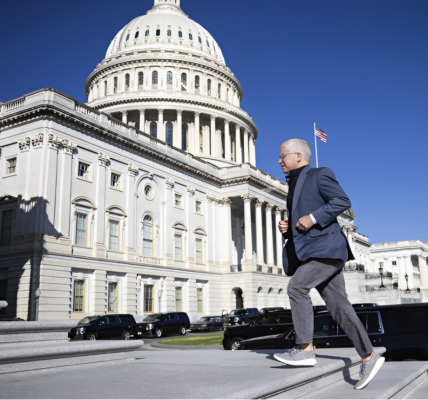
President-elect Donald Trump has expressed his support for the H-1B visa program, aligning himself with tech executives Elon Musk and Vivek Ramaswamy in a growing debate over the hiring of skilled foreign workers in the United States.
In an interview with the New York Post on Saturday, Trump revealed that he had always supported the H-1B visa program, which grants temporary work visas to skilled workers in specialty occupations. “I’ve always liked the visas… That’s why we have them,” Trump said, adding that he had used the program for hiring in his businesses.
The controversy erupted after Ramaswamy, a prominent tech figure and ally of Trump, blamed American culture for driving companies to seek foreign talent. In a post on X, Ramaswamy argued that U.S. firms are hiring skilled foreign workers because the country’s culture values mediocrity over excellence. He suggested that this undermines the U.S. economy, asserting that foreign workers bring needed expertise to the table.
This opinion sparked backlash from anti-immigrant factions within the Trump support base, with critics accusing Ramaswamy of undermining American workers. Ramaswamy later clarified his position, stating that while he believed the H-1B system is flawed, he did not oppose skilled worker immigration.
Despite his previous efforts to limit H-1B visas during his first term, Trump now backs the program. He emphasized that the H-1B visas have allowed him to bring in skilled workers and referred to them as a “great program.”
Musk, who is leading Trump’s “Department of Government Efficiency,” also voiced his support for the visa system, describing it as a tool to attract top engineering talent. Musk defended the hiring of foreign workers, arguing that they represent the “top ~0.1%” of the engineering talent pool.
However, critics argue that companies like Musk’s Tesla, SpaceX, and X benefit from lower wages by hiring foreign workers on H-1B visas. Some have raised concerns that these practices depress wages for American-born workers.
Trump’s stance on the H-1B visa program has divided his base, with figures like former U.N. Ambassador Nikki Haley opposing foreign worker prioritization. Haley criticized the notion that American culture is to blame, stating that the U.S. should focus on investing in American workers.
The debate has also attracted attention from far-right commentators like Laura Loomer, who criticized Trump’s appointments of Indian-born figures, accusing them of undermining the “America First” agenda. Loomer also targeted Musk, accusing him of “censorship” and suggesting his influence over Trump was growing too strong.
The H-1B program, which caps annual visas at 65,000 plus an additional 20,000 for those with advanced degrees from U.S. institutions, has been a key point of contention in the immigration debate. Research indicates that a large proportion of the H-1B visas are granted to workers from India and China.
As Trump prepares to take office, the discussion surrounding H-1B visas continues to evolve, reflecting broader tensions within the Republican Party over immigration policies and the influence of tech billionaires like Musk.




